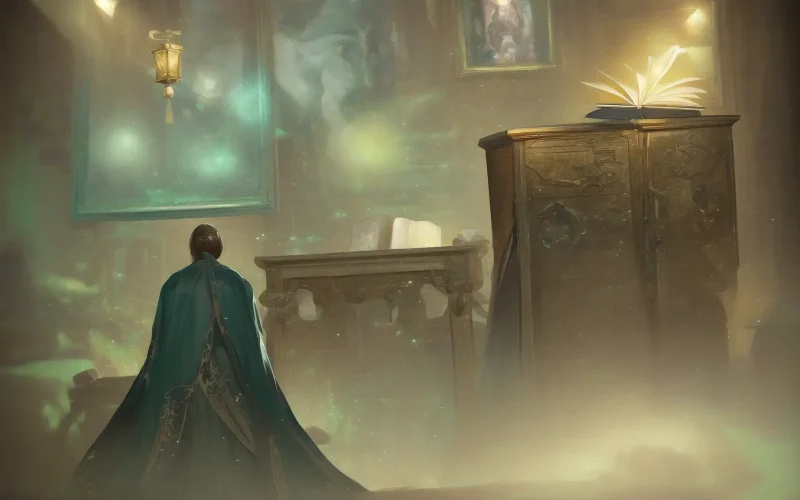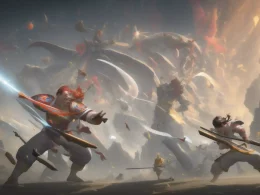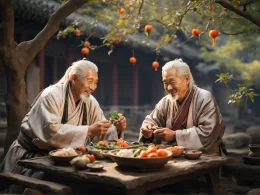Anxious for results and greedy for immediate benefits.
Idiom Pronunciation:
急功近利
jí gōng jìn lì
Origin:
《春秋繁露·对胶西王》: 仁人者正其道不谋其利,修其理不急其功。”
Story:
Dong Zhongshu was a famous philosopher and master of modern scripture during the Western Han Dynasty. He was a doctoral official during the reign of Emperor Jing of the Han Dynasty and was famous for his knowledge of the Gong Yang Spring and Autumn Annals. He concentrated on his studies and did not visit the garden for three years. He was so famous that the scholars at that time honored him with teacher's rites.
During the reign of Emperor Wu of the Han Dynasty, due to the long-term use of foreign troops and the extravagance of the rulers, the taxation was becoming more and more harsh, resulting in the people's discontent and a serious crisis within the feudal ruling group. In the first year of Emperor Wu's reign (134 B.C.), Dong Zhongshu put forward the idea of "dismissing the hundred schools and revering only Confucianism". Emperor Wu adopted his idea, and Dong Zhongshu was sent to the vassal kings to take up the post of minister of state. However, Dong Zhongshu was jealous of his talent and was ostracized by other officials. Later, he was accused of subverting the state and almost executed because of his "disaster and chaos theory". Emperor Wu personally pardoned him in consideration of his old feelings. Later, Emperor Wu listened to the Prime Minister Gongsun Hong and sent him to Jiaoxi. He made him the minister of Jiaoxi Kingdom.
Gongsun Hong and Dong Zhongshu were both teachers of Confucianism. Gongsun Hong was good at meeting and agreeing with people, so he was highly valued by Emperor Wu and was appointed as the prime minister. However, Dong Zhongshu was often unaware of the times and advised him directly, so Emperor Wu had a headache with him and kept him away. Gong Sun Hong had always been jealous of Dong Zhongshu's talent, and this time, he found an opportunity to get rid of him in one fell swoop. The recommendation, too, was a planned murder.
The King of Jiaoxi was the elder brother of Emperor Wu of the Han Dynasty, relying on his status as a Han clan member, he was emboldened, arrogant and violent. Before that, the state ministers sent by the court were all killed by him on various charges, and none of them were spared. Fortunately, because of Dong Zhongshu's reputation and talent, the King of Jiaoxi not only did not kill him, but also respected him very much. Once, King Giao Xi said to Dong Zhongshu, "The wisdom of Gou Jian, together with the talents of Fan Li and Wen Zhu, I think these are the 'three benevolences' of the State of Yue. When the Duke of Qi Huan had a question to consult Guan Zhong, my doubts were solved by you."
Dong Zhongshu replied, "I am so incompetent and uneducated that I am not capable of deciding the great king's doubts. Nevertheless, the king asked me a question, and I could not but answer it to the best of my knowledge. I heard that in the past, the ruler of Lu asked Liu Xiahui: 'I want to attack Qi, what do you think?' Liu Xiahui replied, 'No.' He retired with a sad face and said, 'I have heard that those who conspire to invade a neighboring country do not ask for advice from a benevolent person; why did the ruler of the state ask me this time?' It can be seen that Liu Xiahui felt ashamed even to be asked, let alone to participate in the crusade against Qi! From this, it seems that there was not a 'benevolent' in the State of Yue in the first place, so where did the 'three benevolent' come from? The so-called benevolent people were the benevolent ones who 'corrected their ways and did not seek their profits, cultivated their principles and did not rush to their achievements' (corrected the ways they practiced and did not seek immediate petty profits, cultivated the ideas they believed in and did not rush to achieve results). Dedicated to educating the people with virtue and bringing about a great change in the social climate is the highest level of benevolence, and Yao, Shun and Yu are the examples!"
Similar Idioms:
- 急于求成












